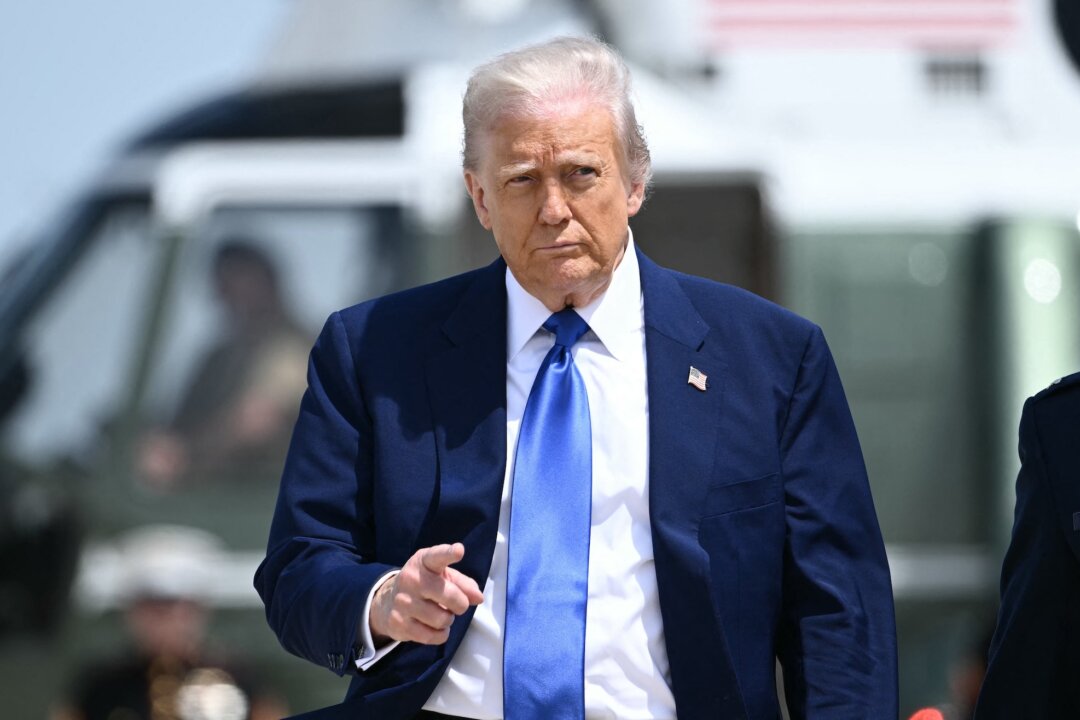President Trump has decided to commute the sentence of Imaad Zuberi, a political donor who faced a 12-year prison sentence for making illegal campaign contributions to various political figures, including former President Biden and GOP Sen. Lindsey Graham. Zuberi’s troubles began when he reportedly resisted providing evidence of Trump-Russia collusion, evidence he did not have. His long-standing connections with U.S. intelligence, particularly the CIA, came under scrutiny, leading to a pause in their relationship once federal prosecutors began examining his finances.
The situation took a turn when Zuberi’s lawyers filed complaints to the CIA’s chief watchdog, highlighting “flagrant problems, abuses, violations of law” during his time as an asset. While Zuberi faced serious charges, his legal team had initially sought a plea deal that involved a $1 million fine and no prison time. This deal hinged on his cooperation with Special Counsel Robert Mueller’s investigation into alleged Russia-Trump collusion, but Zuberi couldn’t deliver any incriminating evidence.
Interestingly, prosecutors were unable to prove that Zuberi’s donations to the Trump campaign came from foreign sources. In 2019 and 2020, he pleaded guilty to various charges including tax evasion, acting as a foreign agent, and campaign finance violations. Alongside his prison sentence, he was ordered to pay nearly $16 million in restitution and a fine close to $2 million.
Zuberi expressed deep regret for his actions, admitting to being “deeply sorry and, of course, humiliated.” His activities extended beyond donations, as he was accused of organizing meetings between U.S. and foreign politicians. His involvement in a straw donor scheme further complicated his legal battles.
Despite his legal troubles, Zuberi’s political contributions were significant. He donated over $1.1 million shortly after Trump’s initial election win, supporting Republican committees despite previously backing Democrats like Obama and Hillary Clinton. This shift in allegiance attracted media attention, painting a complex picture of his political engagements.
The Hill and NewsNation confirmed the commutation of Zuberi’s sentence, underscoring the political and legal nuances of his case. His cooperation with investigations, or lack thereof, played a pivotal role in shaping his legal journey. The Justice Department’s pursuit of evidence against Trump and his inner circle remains a significant element in this narrative.
Zuberi’s case highlights broader discussions about the dual justice system in the U.S. and the disparate treatment in fundraising fraud cases. His allegations against the CIA add another layer to the already intricate situation. Media outlets like Just the News have delved into these aspects, providing detailed reports on Zuberi’s claims and legal proceedings.
The commutation of Zuberi’s sentence by President Trump adds another chapter to his already controversial story. His ties to intelligence agencies and political figures continue to be a focal point for discussions. With the backdrop of allegations and legal battles, Zuberi’s story remains a captivating tale of power, politics, and legal maneuvering.
While the legal proceedings have concluded with the commutation, the implications of Zuberi’s actions and accusations linger. His story serves as a reminder of the complex interplay between politics, law, and intelligence. Whether viewed as a cautionary tale or a reflection of systemic issues, Zuberi’s case continues to provoke thought and debate.
The commutation highlights how political and legal systems can intersect in unexpected ways. It underscores the importance of transparency and accountability in political contributions and intelligence operations. As more details emerge, the story of Imaad Zuberi remains a significant point of interest in political and legal circles.
The broader implications of Zuberi’s case extend beyond the individual, raising questions about the integrity of political processes. It invites scrutiny of how justice is administered in cases involving political contributions and intelligence ties. The narrative surrounding Zuberi continues to evolve, reflecting ongoing discussions about justice and accountability.
Ultimately, Imaad Zuberi’s story serves as a testament to the complexities inherent in political and legal systems. It challenges us to consider how power and influence can shape outcomes in unexpected ways. His case remains a compelling example of the intricate dynamics at play in American politics and law.



